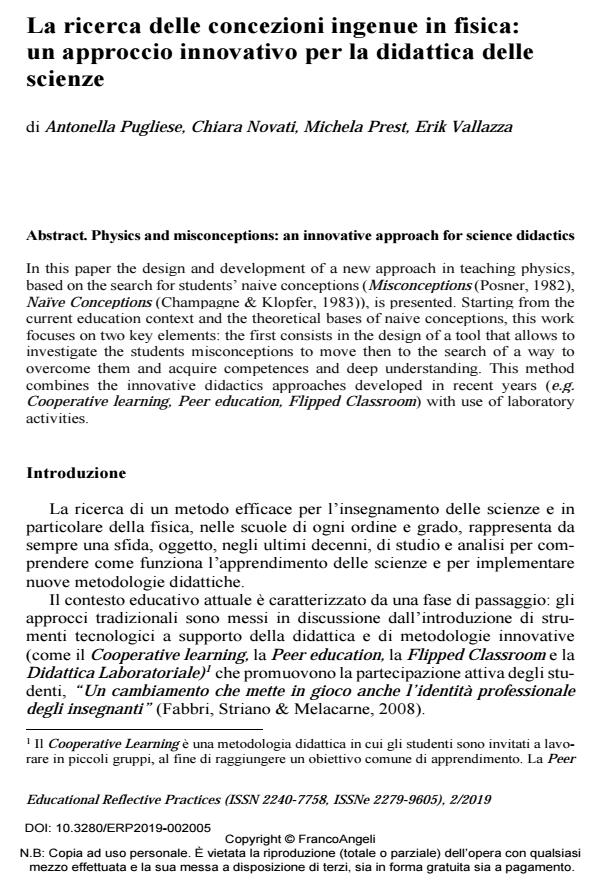Physics and misconceptions: an innovative approach for science didactics
Journal title EDUCATIONAL REFLECTIVE PRACTICES
Author/s Antonella Pugliese, Chiara Novati, Michela Prest, Erik Vallazza
Publishing Year 2020 Issue 2019/2
Language Italian Pages 22 P. 76-97 File size 383 KB
DOI 10.3280/ERP2019-002005
DOI is like a bar code for intellectual property: to have more infomation
click here
Below, you can see the article first page
If you want to buy this article in PDF format, you can do it, following the instructions to buy download credits

FrancoAngeli is member of Publishers International Linking Association, Inc (PILA), a not-for-profit association which run the CrossRef service enabling links to and from online scholarly content.
In this paper the design and development of a new approach in teaching physics, based on the search for students’ naive conceptions (Misconceptions (Posner, 1982), Naïve Conceptions (Champagne & Klopfer, 1983)), is presented. Starting from the current education context and the theoretical bases of naive conceptions, this work focuses on two key elements: the first consists in the design of a tool that allows to investigate the students misconceptions to move then to the search of a way to overcome them and acquire competences and deep understanding. This method combines the innovative didactics approaches developed in recent years (e.g. Cooperative learning, Peer education, Flipped Classroom) with use of laboratory activities
Antonella Pugliese, Chiara Novati, Michela Prest, Erik Vallazza, La ricerca delle concezioni ingenue in fisica: un approccio innovativo per la didattica delle scienze in "EDUCATIONAL REFLECTIVE PRACTICES" 2/2019, pp 76-97, DOI: 10.3280/ERP2019-002005